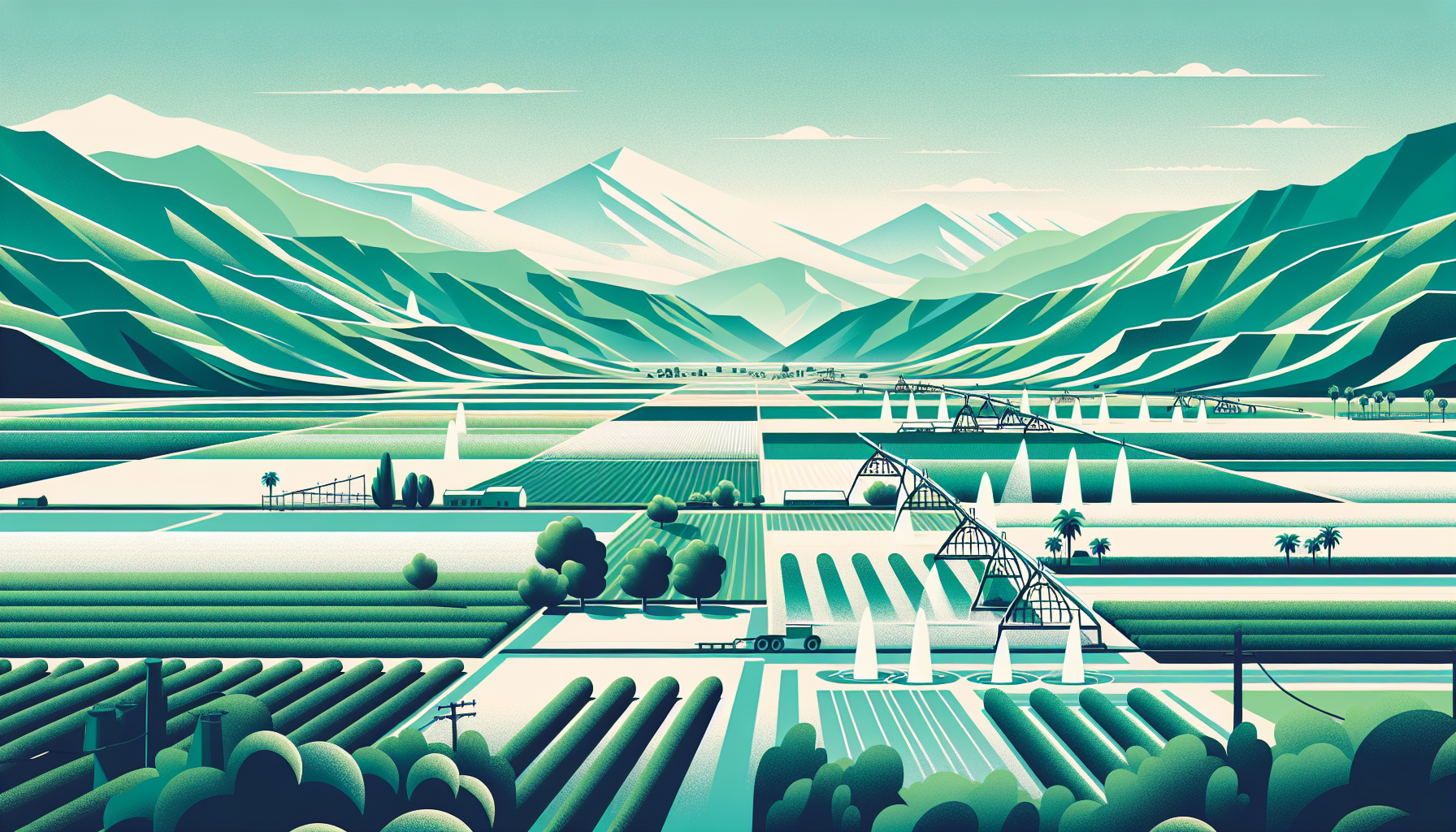The demand for water from the Colorado River is of paramount importance out West and the focus of some big battles. It's been especially critical for farming and agriculture. In California's Imperial Valley, there are growing questions over the use of that re…
Why it matters
- The Colorado River serves as a vital water source for various states, particularly in the West, where water scarcity is a pressing concern.
- Agriculture, especially in regions like California's Imperial Valley, heavily relies on this water supply, making it crucial for food production.
- The ongoing disputes over water rights and usage could have significant implications for local economies and farming practices.
As water scarcity becomes an increasingly pressing issue in the western United States, the Colorado River has emerged as a focal point for intense debates and conflicts. This vital waterway supports numerous states, providing essential resources for agriculture, residential use, and industrial needs. However, as demand continues to outpace supply, the stakes are rising, particularly for farming communities that depend on this resource to sustain their livelihoods.
In California's Imperial Valley, the implications of water use from the Colorado River are particularly stark. This region is known for its extensive agricultural output, which includes a significant portion of the nation's vegetables and fruits. As farmers grapple with the realities of dwindling water supplies, questions are being raised about the sustainability of current water usage practices. The increasing scrutiny surrounding the allocation of water is indicative of broader concerns regarding environmental sustainability and long-term agricultural viability.
The challenges surrounding the Colorado River stem from a combination of factors, including prolonged drought conditions, climate change, and historical water rights agreements that date back decades. These agreements, designed to allocate water among several states, are now being tested as the river's flow declines. As states face the reality of reduced water availability, tensions are escalating over how to manage this critical resource.
In the Imperial Valley, agricultural stakeholders are at the forefront of this debate. With farming operations heavily reliant on consistent water access, the prospect of reduced allocations poses a significant threat to the region's economy. Farmers are increasingly concerned about their ability to maintain production levels, which could lead to higher food prices and economic instability within the community.
Moreover, the situation is complicated by competing interests. Urban areas in states like Arizona and Nevada are also vying for their share of the river's water, leading to a complex web of negotiations and conflicts. As each state pushes to secure its water rights, the potential for cooperative solutions diminishes, raising the risk of legal battles that could prolong the crisis.
Environmental groups are also weighing in on the debate, emphasizing the need for sustainable practices that protect the river's ecosystem. They argue that over-extraction of water not only threatens agricultural viability but also endangers wildlife habitats and water quality. This perspective adds another layer of complexity to the discussions, as stakeholders must grapple with balancing agricultural needs against environmental considerations.
As negotiations continue, the future of the Colorado River remains uncertain. The ongoing drought, exacerbated by climate change, highlights the urgent need for innovative solutions that can reconcile the competing demands for water. Some experts suggest that implementing more efficient irrigation practices, investing in water recycling technologies, and promoting conservation efforts could help alleviate some of the pressure on the river.
In the meantime, the situation in the Imperial Valley serves as a microcosm of the broader challenges facing the West. As agricultural demands become increasingly scrutinized, farmers must navigate a landscape of uncertainty and potential change. How local communities adapt to these challenges will have lasting implications not only for their economies but also for the region's long-term sustainability.
The battles over water from the Colorado River are far from over. As stakeholders continue to advocate for their interests, the potential for compromise will be tested. The outcomes of these discussions will significantly influence the future of agriculture in the West and the overall health of the Colorado River, a lifeline for millions.











